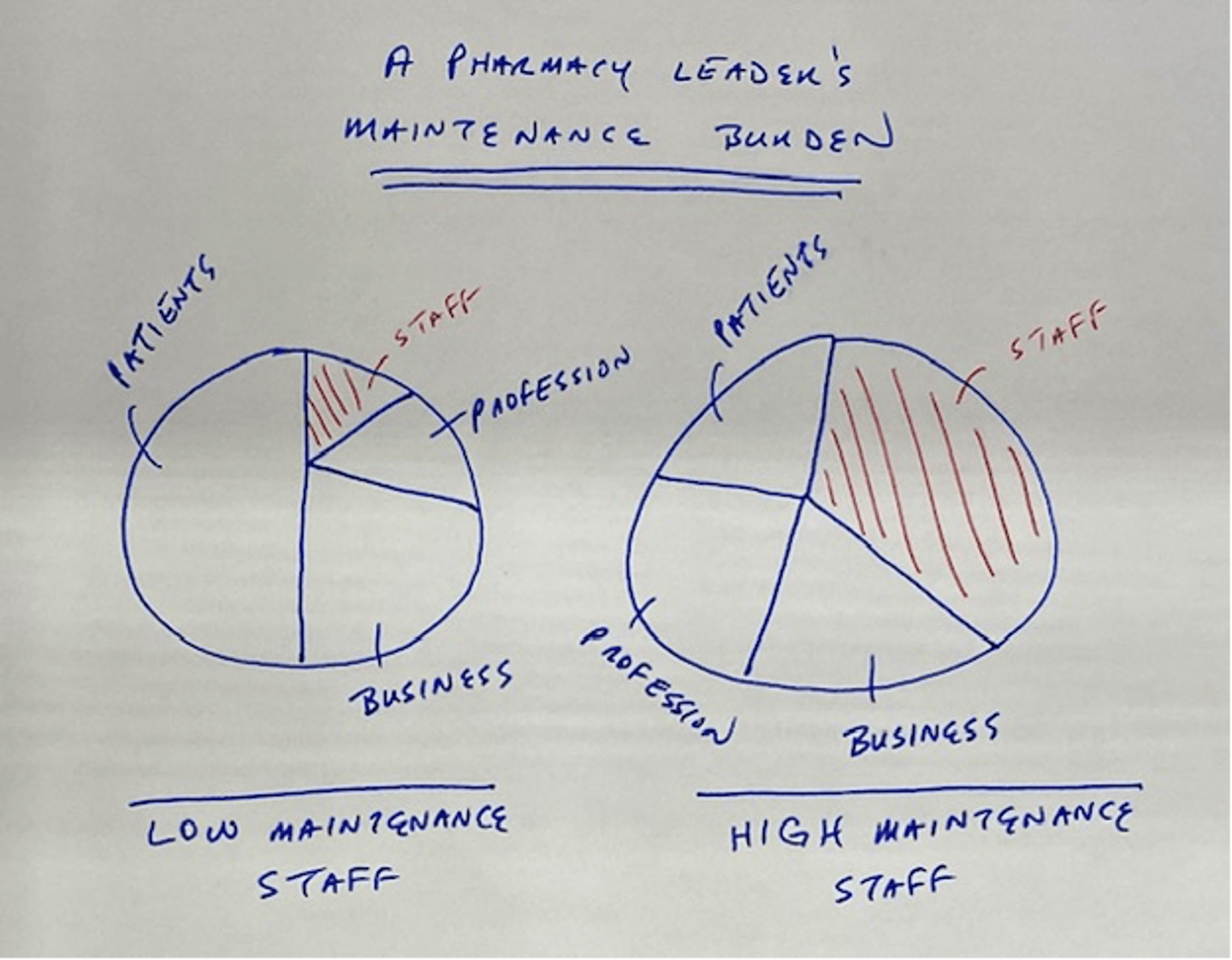Is your pharmacy staff high maintenance?
Do you have a friend with repeated car problems or perhaps own a car like this yourself? That car ends up costing you time and money repeatedly and the frustration has you thinking about a new vehicle. That car is high maintenance.
In thinking about your pharmacy team, do you have high maintenance staff members?
Do high maintenance staff take away from the energy you have for your business or worse, your patients?
Since our time, energy and attention are a limited resource, we must ensure we are using it in the right areas. High expenditure on staff could yield less investment in other areas, such as adapting the business to be sustainable for the future or managing the changes induced by the profession. Worse, staff could take away from our patient impact.
What do high maintenance staff look like?
Over years of practice, I have recognized some patterns in what we can call high maintenance staff. While a necessity of our pharmacy leader role is to support, develop and coach people, there is a threshold when the time and energy expenditure turn a manager from supportive to unproductive.
Our job from here is not to get rid of them, but to continue to coach in ways that demonstrate how to filter what is important and what is not worth our time. To help these staff members, discuss principles for decision making, which areas of our day are worth holding our time, and let them know when you are not concerned about a topic.
The more alarming (yet still coachable) components that some high maintenance staff exhibit can be repeatedly calling in sick, spending too much time on their cellphone or having difficulty completing or prioritizing tasks when their experience level should make these tasks easier.
Prevention is easier than treatment
Since our goal is low turnover, our efforts are best served at the first stage — bringing people into our businesses. Screening for the low maintenance characteristics during recruitment and interviewing is worth the time investment.
Low maintenance staff often listen more than they speak. They develop great opinions and ideas only after practice and consideration. They avoid texting or calling the leader about non-urgent things or when the leader is away. They have relatively simple needs in terms of schedules or are very good at managing their home lives such that any problems at home do not overly affect their work.
They are able to filter the type of problems that are true problems worth fighting for, instead of seeing everything as a fight. They avoid digging up research to prove themselves right and focus on the overall mission instead of trying to prove others wrong.
Can we screen for low maintenance staff while interviewing?
Low maintenance staff are generally content with what they have. During an interview, they mention a few simple things in their home life that they appreciate and seem to have an overall positive outlook on life. If you are having trouble finding examples of this in their stories, ask open-ended questions to confirm if this quality exists, “What is one thing in life that frustrates you? What is a significant life challenge?”
Ultimately, their outlook will hint at their attitude, which is not something we can teach.
During their interview, consider if this is a person that will require a reasonable amount of your attention.
Are they coachable?
Will this coaching work for you and the team, or against?
What does your mechanic tell you about your car?
Want an independent opinion of how high or low maintenance your staff are? Want to brainstorm on ways to coach? Want to discuss ideas on how to turn high maintain cars into low maintenance ones? Hire Jason for a VIP Day, where he helps you build the ultimate pharmacy team by the end of the day. Click here to learn more.







